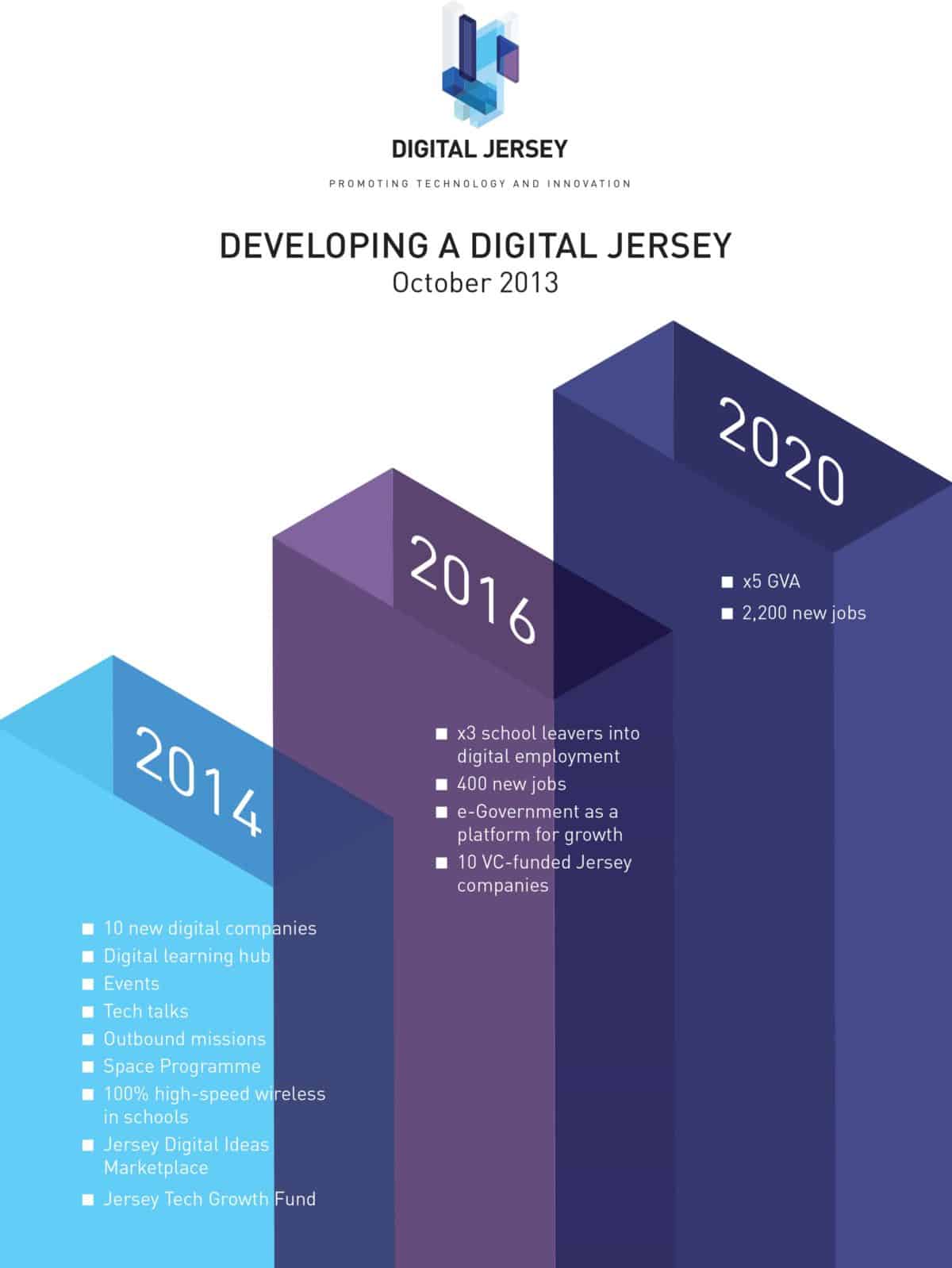
On the 10th October Digital Jersey presented their Strategy and Business Plan to industry and members of government for the development of the island’s digital sector.
The strategy includes long-term growth targets and short-term goals for the island’s development. The plan also identifies the critical dependencies that must be in place to achieve these goals, together with an assessment of how Jersey will compete against other jurisdictions.
Digital Jersey’s role is to act as an accelerator for the development of the digital economy in the island and to assist progress towards a digitally enabled society. The plan includes targets for economic and job growth, social benefits and reputation for Jersey.
The presentation outlined Digital Jersey’s programme of work for the next year and beyond, including a focus on developing education initiatives, e-Health, e-Gov, e-Gaming, Tech Growth Funding and also support for other key industries, such as Tourism, Finance and Retail.
The strategic targets set by Digital Jersey are specific and measureable, and will assist in the economic diversification of the Island. They are:
- By 2016, there will be 400 new jobs in the digital sector in the island
- By 2017, Jersey residents will use innovative services that can enhance their health and well-being, delivered over an e-government platform that gives equal access to all
- By 2018, there will be five times more Jersey students finding work in Jersey’s digital sector than in 2013
- By 2020, employment in the digital sector will be increased by 2,200 people – four times higher than its 2013 level of 560
- By 2020, the digital economy will have grown by a factor of five from its 2013 level
- By 2020, Jersey will have a reputation as a preferred jurisdiction for investment target sectors, including e-Health, e-Government, Data Ownership and e-Gaming
To deliver these objectives, Digital Jersey will work closely with the States of Jersey and other stakeholders to ensure that the following critical dependencies are in place:
- No barriers to inward migration of essential skills and talent. Development of on-island skills is a key priority but will take time to gain momentum. In the early years of the plan, these skills will need to be imported
- An education programme that accelerates employment of students and reskilling of employees towards the digital sector
- The communications environment must be exceptional in terms of service reach, domestic and business capability and competitive data pricing
- A compelling inward investment proposition for digital companies, financed by the States of Jersey
- Capacity and capability to make fast legislative and regulatory reform
- A funding regime that encourages investment in the digital sector, from ideas and start-ups to growth.
- The effective development of an e-government platform that delivers improved services to citizens and facilitates the development of new services and business opportunities
- Sustained support by the States of Jersey for this initiative
Within the plan, near term objectives include the development of a Digital Learning Hub to increase availability of locally trained talent, important schools programmes to grow interest among students, including a Jersey Space Programme and 3D Printing for schools, and the launch of Jersey Tech Growth Fund. Digital Jersey is also working with government to address the critical issue of off-island data costs. Complementing this is an ambitious schedule of events, on and off-island to support existing business in the island and to attract new business opportunities.
Ted Ridgway Watt, CEO of Digital Jersey, commented:
“We now have a clear set of measurable aims and objectives that will support Jersey’s development as a centre of digital excellence. However, it is also clear that significant support from government and industry is going to be essential for us to succeed. Our role at Digital Jersey is to act as an accelerator for these objectives in order to support the digital economy and digitally enabled and connected society.”



